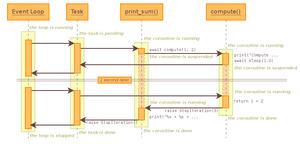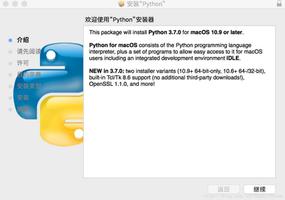python3 Timer 内存泄漏

发现我如下使用Timer会出现内存泄漏,程序运行起来,内存使用量快速增加,不会减少。这段代码在tkinter界面中,若用tkinter.after将Timer替换,内存泄漏就不存在了。如何使用Timer才是正确的姿势?谢谢!
from threading import Timer, Threadfrom queue import Queue
import time
def opWork():
while True:
if not opQueue.empty():
opQueue.get()
print(" -------------- pocess a cmd!")
else:
time.sleep(0.001)
def tickOff():
opQueue.put("cmd")
global tick
tick.cancel()
tick = Timer(0.001, tickOff)
tick.start()
print("add a cmd! -------------- ")
tick = Timer(0.001, tickOff)
if __name__ == "__main__":
opQueue = Queue()
worker = Thread(target=opWork)
worker.start()
tick.start()
是python本身的bug吗?刚找到这个 [issue43050] threading timer memory leak
问题代码如下:
While True: timer = threading.Timer(5, None)
timer.start()
timer.cancel()
我试了,内存快速增加,不会减少。
回答:
def tickOff(): opQueue.put("cmd")
global tick
tick.cancel()
tick = Timer(0.001, tickOff)
tick.start()
print("add a cmd! -------------- ")
tick = Timer(0.001, tickOff) 自己在调自己 无限递归
from threading import Timer, Threadfrom queue import Queue
import time
def opWork():
while True:
if not opQueue.empty():
opQueue.get()
print(" -------------- pocess a cmd!")
else:
time.sleep(0.001)
def tickOff():
opQueue.put("cmd")
if __name__ == "__main__":
opQueue = Queue()
worker = Thread(target=opWork)
worker.start()
while 1:
tickOff()
time.sleep(1)
以上是 python3 Timer 内存泄漏 的全部内容, 来源链接: utcz.com/p/937989.html






